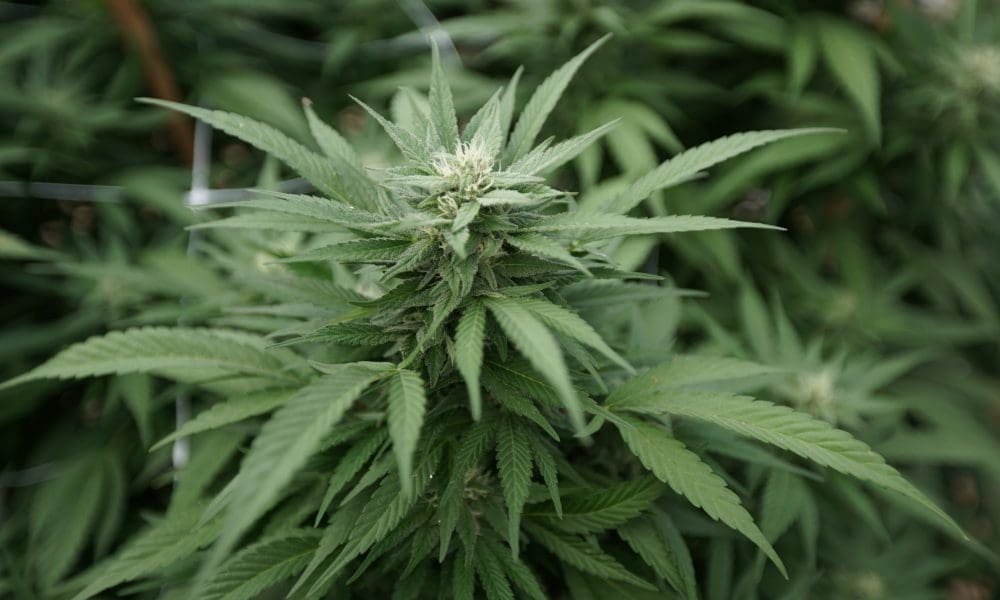After voters in Slovenia passed two ballot measures on marijuana, the lawmakers have now introduced a new bill to regulate cannabis exclusively for scientific and medical use.
According to reports, the measure from The Left (Levica), and the Freedom Movement, (Gibanje Svoboda), would remove cannabis plants, resin, and extracts from Slovenia’s illegal drug list. THC would be prohibited, unless it was used in medical or scientific research.
According to N1, the Freedom Movement made a proposal that would protect cannabis patients from products not verified on the blackmarket, ensure a continuous supply of medical marijuana to patients, as well as address legal issues in cannabis usage for medical or scientific purposes.
The members of Parliament “want an efficient system, which takes into account existing competences of the competent authority, and allows economic opportunities. They also want to clearly define criteria for growing permits, for both researchers as well.
According to the proposed proposal, it would be the Public Agency for Medicines and Medical Devices that is responsible for licensing and regulation of the production and sale of medical marijuana. The Ministry of Health will issue licenses for the use of marijuana specifically to support scientific research.
The Freedom Movement has said that it will regulate cannabis in the future for adults to “personally use limited amounts” of the drug.
Reports indicate that the new medical legislation requires marijuana to comply with the same regulations for production and distribution as traditional medicines. Cannabis would then be prescribed like any other drug.
Left lawmaker Nataša Sukić reportedly said that patients with multiple sclerosis, severe forms of epilepsy and various forms of cancer would be among those who would qualify for the program.
Member of Parliament Sara Žibrat, of the Freedom Movement, said the change “will bring new economic opportunities, including for exports to other countries,” according to the publication Dnevnik.
On the day of the Marijuana March organized by the Student Organization of the University of Ljubljana, the introduction of the legislation coincided with the Marijuana March.
“The current prohibition is clearly not working—it only benefits the black market, while cannabis users and the state are worse off,” organizers said, according to N1. “Prohibition is proven to be the worst and most harmful form of ‘regulation.'”
Meanwhile, the group behind the International Cannabis Business Conference—which is set to kick off in Berlin later this month—is calling the Slovenian proposal “Europe’s most progressive medical cannabis law.” The group cited amongst other provisions, that the Slovenian proposal would be open to all qualified applicants and not establish a monopoly by the state. It also required products to meet strict standards of quality and production.
In June of last year, voters in Slovenia approved a pair of advisory ballot measures in favor of home cultivation for medical patients as well as non-commercial legalization for adults.
The question of whether patients could cultivate cannabis plants for their personal use received 67 percent approval from voters. A question asking whether voters should have the right to grow cannabis for their own personal use was supported by 67 percent of voters. You can find out more about it here. Support for the idea that adults can legally possess and grow marijuana was 52 percent.
Slovenia’s National Assembly voted to put the questions on the ballot in April. These results were advisory only and did not bind lawmakers. Notably, the National Institute of Public Health of the United States took a stance against cannabis.
In Slovenia it is currently legal to use some cannabinoid substances, but not medical marijuana.
This bill is one of the most recent examples in Europe that a reform movement for marijuana has been gaining momentum.
After a key national election earlier this month in Germany, coalition parties forming a new government said they would conduct a “open-ended assessment” of Germany’s new legalization marijuana.
The reformers were watching to see what the coalition of centrist parties would do with the new legalization laws that went into effect in April. Conservatives elected to the legislature expressed their wish to reverse the legalization laws, but were unable to convince another political party to join the coalition.
Beginning in April of last year, the legalization of possession and home cultivation for adults took effect in Germany. In addition, cannabis social clubs have been opened to provide legal access to marijuana.
German officials convened a conference last year where they invited leaders to exchange their experiences on legalizing and controlling marijuana. They also focused the discussion on public safety and combating the illicit drug market.
Burkhard Blienert (German Commissioner for Drug Issues and Addiction) invited Burkhard Blienert and representatives of Luxembourg, Malta and The Netherlands to Berlin.
The cannabis policies of the participating countries differed. Malta was the first European state to legalize marijuana in 2021. Luxembourg was next, and the new law went into effect officially in 2023.
Government officials from several countries, including the U.S., also met in Germany in 2023 to discuss international marijuana policy issues as the host nation worked to enact legalization.
A group of German lawmakers, as well as Blienert, separately visited the U.S. and toured California cannabis businesses in 2022 to inform their country’s approach to legalization.
After a first-of its-kind summit, top officials of Germany, Luxembourg and Malta met in the Netherlands to discuss challenges and plans associated with legalizing recreational marijuana by 2022.
Trump’s Pollster Shows That Republicans Are ‘Even More Supportive’ Of State Marijuana Legalization Rights Than Voters Overall Are
Side Pocket Images. Image courtesy Chris Wallis.




